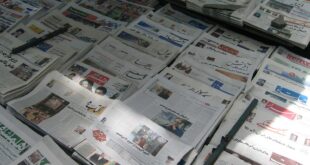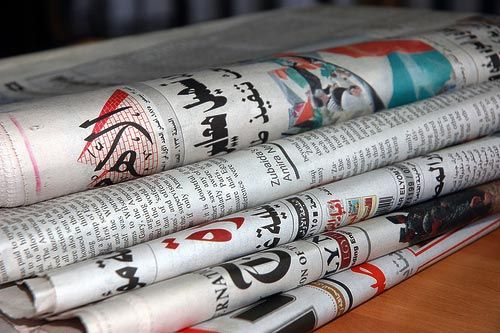Issue 37, Winter/Spring 2024 https://doi.org/10.70090/TI24AIS5 Abstract The phenomenon of alienation, which is widely examined in both specialized and general studies, has seen a decline in its conceptual clarity and usage in recent times. Meanwhile, a new paradigm known as Society 5.0 has emerged, which coincides with the technological surge in …
Read More »AI and Algorithms Tackling the Media and Creative Industries: Addressing Societal Consumer Behavior Directions and Challenges in the Next Digital Frontier
Issue 37, Winter/Spring 2024 https://doi.org/10.70090/SN24AIAT Abstract In the past decade, artificial intelligence (AI) has rapidly developed and proliferated. This growth is revolutionizing business and commerce, as well as how individuals interact. The industry of media, which encompasses broadcasting, advertising, entertainment, and journalism, has been impacted by this novel and revolutionary …
Read More »Unveiling the Potential of Artificial Intelligence in Moroccan E-press: Exploring opportunities and Risks
Issue 37, Winter/Spring 2024 https://doi.org/10.70090/ACMB24ME Introduction The implementation of artificial intelligence (AI) into our daily lives is rapidly spreading. AI systems are now capable of handling multiple tasks, making decisions, as well as managing work that was previously the domain of skilled experts. The rapid propagation of AI has led …
Read More »Challenging Gender Roles Through Brand Storytelling
Issue 36, Summer/Fall 2023 https://doi.org/10.70090/AE23CGRB Abstract This article examines brand storytelling and utilizes a qualitative analysis of two advertising campaigns. This article endeavors to research this content as a means of inspiring positive change, challenging stereotypes, and promoting gender equality. The research focuses on two distinct advertising campaigns, which are …
Read More »Arab Women self-presentation in feminist podcasts: An Analytical Study (Arabic)
Issue 36, Summer/Fall 2023 https://doi.org/10.70090/SK23AWFP Scroll down for Arabic abstract. In contrast to the negative stereotypical portrayals of Arab women in traditional media, this study investigates the self-presentation strategies employed by Arab women in feminist podcasts that utilize storytelling. The research adopted a mixed method of narrative analysis and …
Read More »The Face of Arab Women in Cyber-Literature
Issue 36, Summer/Fall 2023 https://doi.org/10.70090/MF23FAWC Abstract This study examines the representation of Arab women in cyber literary works by employing the cyberfeminism criticism perspective. The cyber world in literary works provides capacity for public dialogue while also playing a role in constructing the identity and self-image of women who engage …
Read More »Role of World Cup Soccer in Healing the Gulf Region: Zeal of Qatar’s Sport Diplomacy and Soft Power
Issue 33, winter/spring 2022 https://doi.org/10.70090/NS22WCSH Abstract The study discusses the importance of the Qatar World Cup in 2022 and its implications for Gulf area relations in terms of sports diplomacy and soft power influence. This research employs a descriptive-analytic technique. Descriptive literature reviews synthesize individual studies and discuss the research …
Read More »الزواج السعيد بين الإعلام والرياضة.. هل أصبح أكثر سعادة؟ نحو أجندة بحثية جديدة في العصر الرقمي
مقدمة يقول ديفيد روي (Rowe 2004) في كتابه المعروف الثالوث الصعب: الرياضة، والثقافة، ووسائل الإعلام: "في جميع أنحاء العالم وعلى اتساع مناطق الكرة الأرضية باختلاف توقيتاتها، يشترك الناس ذوو الثقافات واللغات والديانات والأيديولوجيات المختلفة والمتباينة في خبرات يومية متشابهة.. إنها الاهتمام بالرياضة وأخبارها، التي تتضمن أفرادًا وفرقًا وأندية وجماعات يجتمعون معا …
اقرا المزيد »السياسات الإعلامية الإيرانية تجاه قضايا العالم العربي – دراسة نقدية تحليلية
مقدمة يحتل الإعلام مكانة متقدمة في أولويات النظام الإيراني الذي يعتمد على آلة ضخمة من الوكالات الإخبارية والصحف اليومية المطبوعة والمواقع الإلكترونية والقنوات الفضائية في مصفوفة سياساته الداخلية والخارجية على حد سواء، ولإن أخذ الإعلام موقعه في صدارة تراتبية صنع القرار بهذا النظام؛ فإن موقعه أكثر تقدما خاصة في رسائله …
اقرا المزيد »إشكاليات وتحديات التناول الإعلامي للشأن الصحي في العالم العربي
Issue 31, winter/spring 2021 https://doi.org/10.70090/SM21PCMC مقدمة مع تعرض المجتمعات على اختلاف مستويات تقدمها أو تأخرها، لموجات من الأمراض المزمنة والأوبئة، تثار إشكالية التناول الإعلامي المتخصص للشأن الصحي والطبي في عالمنا العربي، وما يتعلق به من أمراض وإصابات وعدوى وتشخيص ومواجهة وعلاج، وتثير تلك الإشكالية الكثير من التساؤلات الجديرة بالبحث وصولًا إلى …
اقرا المزيد » Arab Media & Society The Arab Media Hub
Arab Media & Society The Arab Media Hub









